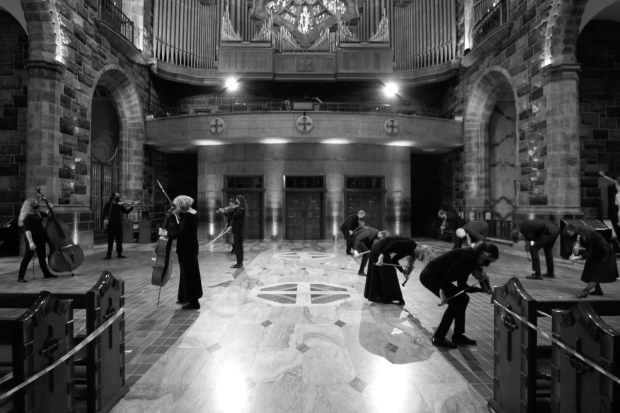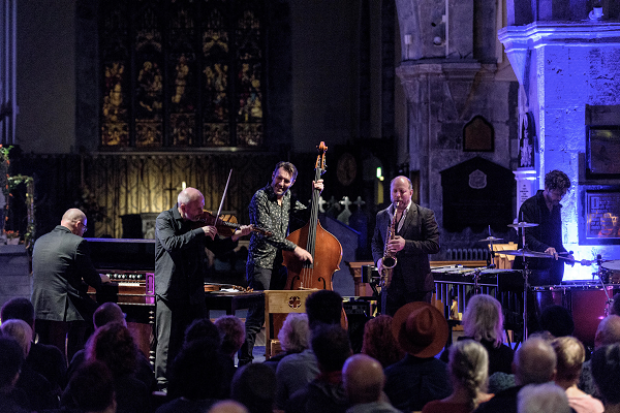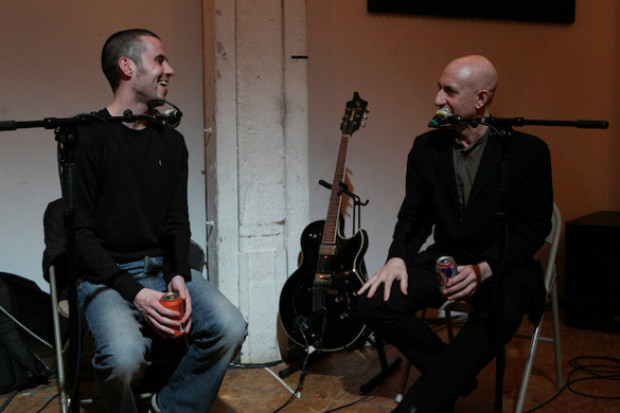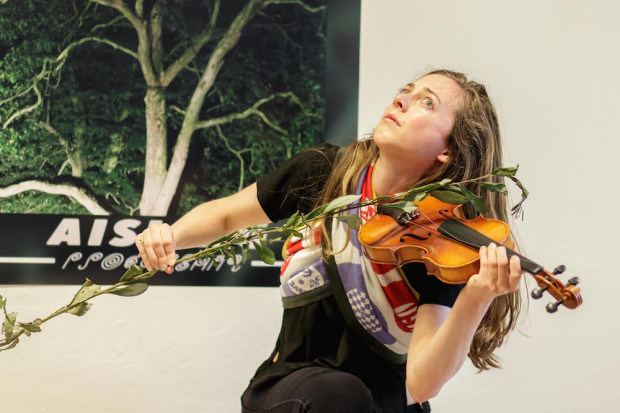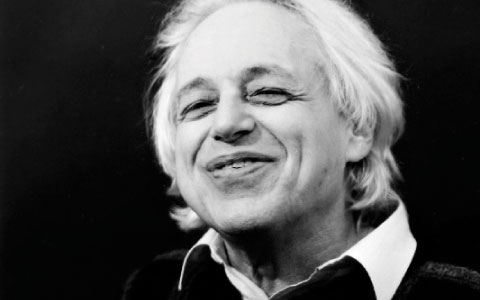
Music by Committee
I hate composers’ competitions. They annoy me.
I allow myself to have a strong opinion on this subject because I myself am not a composer, and therefore have no personal axe to grind. My life would not be noticeably different if the number of such competitions worldwide was suddenly quadrupled, or conversely if they were all discontinued forthwith.
I remember how infuriated I was when, in 1986, György Ligeti was presented with the Grawemeyer Award from the University of Kentucky for the first book of his Études for piano. By that time he was, by any conceivable standards, one of the world’s finest living composers, an internationally acknowledged figure with a catalogue of astonishing music that had helped define and redefine the nature of contemporary composition. It doesn’t matter if you prefer his Atmosphères or his Kammerkonzert to the Études, or if you happen to think that the Stockhausen Klavierstücke are finally more crucial to the development of twentieth-century piano music than Ligeti’s Études – it’s the idea of a committee of rich men in suits (or so I imagine them to be) sitting in judgment on these bold, vibrant, newborn-and-still-bleeding works of art that I find appalling. Nelson Keyes, executive secretary of the Grawemeyer Award, described the Études as ‘major, major music’. (If only we all were so articulate.) I hasten to add that I don’t for one minute suppose that Ligeti minded as much as I did, or indeed at all, and of course no composer objects to being given $150,000; but that’s not the point. The idea of passing pseudo-definitive judgments on works of art, or people, as though from on high, is horrifying.
My adopted city of Amsterdam surpassed itself recently in hosting not one composers’ competition but two. The Gaudeamus Music Week has been awarding such prizes since 1957. But now we also have Toonzetters, a new event organized by Buma Cultuur, Muziekgebouw aan ‘t IJ and Muziek Centrum Nederland that recently presented a free eleven-hour event featuring the ‘ten best new Dutch compositions’. I refused to attend this event and accept the moronic notion that there is any such thing as the ten best new Dutch compositions. Has someone out there really heard every single piece produced that year so that they can confidently select the ten best? And what could ‘best’ possibly mean in this context? Most original, most pathbreaking? (No way – those kinds of pieces never win competitions.) Most competently written for the instruments/voices? (Does that mean those that conform to the status quo and opt for safe, readily playable solutions, pushing no boundaries?) Does ‘best’ have anything to do with audience response, with popularity? (Should it? Discuss.) No matter what way you look at it, in trying to define ‘best’ we very quickly embark on downward spirals of circular reasoning.
OK, I’m prepared to admit there are positive sides to these events, however accidentally. Some good pieces get played, and even written, that might not otherwise. But that could happen just as well in the atmosphere of a non-competitive festival as in a competition. Yes, new music festivals can have a competitive edge even if no actual prize is at stake, but then any professional scene has its snakes and vipers. The fact remains: some great composers have won many awards, and some great composers have never won an award in their life. Either way it means absolutely nothing.
But surely being a winner of such a competition does wonders for one’s career, and thereby advances the cause of new music overall? I tested this claim by talking to winners of international competitions and found they had rather different views on the matter. Roger Doyle, whose The Ninth Set won the Magisterium Award at the Bourges International Electro-acoustic Music Competition in France in June 2007, has ‘no reservations whatsoever’ about the benefits of composers’ competitions. ‘Winning competitions is important. I tell all my students to apply for them: cash, recognition, a flashing red light on a map of the world’. It’s not only about recognition: as a young composer Doyle won second and first prizes in the Dublin Symphony Orchestra’s composition competition in the 1970s and as a result, he remarks, ‘I heard my music performed by two different orchestras at the age of twenty-two. Fantastic’.
Jennifer Walshe won the Kranichsteiner Musikpreis at the Internationale Ferienkurse für Neue Musik in Darmstadt, Germany, in 2000, when she had just turned twenty-six: ‘I think for me… the exposure leading up to the decision was maybe just as beneficial [as winning the competition]. Everyone who goes to the Darmstadt summer course is technically an entrant, which means there’s about 300 competitors all there for two weeks, hearing each other’s music in the studio concerts, and a lot of powerful people in the German new music world turn up to hear those concerts – radio programmers, festival directors, etc. In 2000 I performed as mo cheann. The jury didn’t make their decision for several days afterwards, and in the intervening time people came and gave me their cards and told me to contact them, and that resulted in commissions and performances. It was important for me to know that they gave me their cards on the strength of my music, before the jury had made their decision’
But Walshe does have reservations: ‘The format often forces composers to write within the same old time and instrumental constraints – for example, ten to twelve-minute pieces for some variation of the Pierrot Lunaire line-up – and I do often think there are certain aesthetics which never win competitions, or certain competitions which overly favour certain styles, all of which contributes to young composers writing pieces which they may not necessarily want to write.’
What we really need are not more composers’ competitions but more ensembles prepared to take risks in commissioning, rehearsing (properly rehearsing, not just busking through) and performing pieces by young and/or not yet established composers. This is tough, because the funding to support that sort of activity is rarely available, and it’s tough because it takes a discerning ensemble to implement a quality filter on the whole process and ensure that they don’t end up receiving a collection of turkeys. But if we are concerned with stimulating genuine work in contemporary composition, this seems to me one of the more promising ways to go about it. The idea that a composer might write a better piece because a composition prize is at stake is an absurd idea – great music, alas, cannot simply be produced on demand, no matter how great the potential financial reward.
When I was a student, my fellow new music heads and myself, one drunken evening, came up with a dreadful game. You had to make pairings of composers – for example Michael Tippett and Benjamin Britten – and choose which you would rather have shot at birth and which you would spare but instead burn all their works. And why. This of course is a horrible sort of ‘competition’: both contestants lose. We use to laugh ourselves senseless at some of these pairings and the judgments we had to make in coming to a decision (OK, we were students, trying to prove ourselves, trying to show what smart-arses we were). This competition was a particularly cruel one; but it’s my belief that much of the discussion that goes on at composers’ competitions is not really all that much higher intellectually, and the criteria involved in the decision-making process often do not stand up to scrutiny any more than does the ‘logic’ of our twisted game.
Published on 1 April 2009
Bob Gilmore (1961–2015) was a musicologist, educator and keyboard player. Born in Carrickfergus, Northern Ireland, he studied at York University, Queen's University Belfast, and at the University of California. His books include Harry Partch: a biography (Yale University Press, 1998) and Ben Johnston: Maximum Clarity and other writings on music (University of Illinois Press, 2006), both of which were recipients of the Deems Taylor Award from ASCAP. He wrote extensively on the American experimental tradition, microtonal music and spectral music, including the work of such figures as James Tenney, Horațiu Rădulescu, Claude Vivier, and Frank Denyer. Bob Gilmore taught at Queens University, Belfast, Dartington College of Arts, Brunel University in London, and was a Research Fellow at the Orpheus Institute in Ghent. He was the founder, director and keyboard player of Trio Scordatura, an Amsterdam-based ensemble dedicated to the performance of microtonal music, and for the year 2014 was the Editor of Tempo, a quarterly journal of new music. His biography of French-Canadian composer Claude Vivier was published by University of Rochester Press in June 2014. Between 2005 and 2012, Bob Gilmore published several articles in The Journal of Music.














